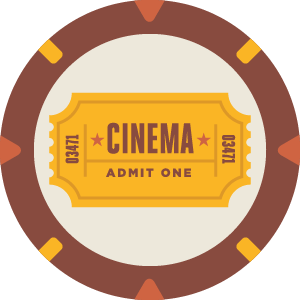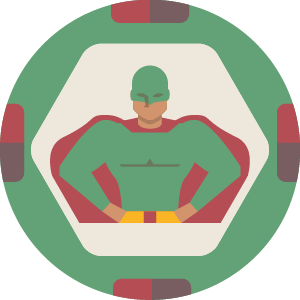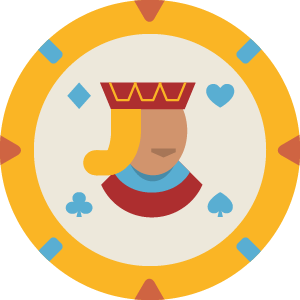������
If I'm not playing poker, I'm probably working.
I've been an actor for many years (hence the headshot as my profile picture - I don't normally go around this well lit), as well as a director and writer. I'm certainly not famous, and I go to my spike-through-the-forehead day job like most everyone else. But if you saw the films "The Final Season" and "Dead Awake," then you saw me. I've happily been working with some frequency with director Thor Moreno and producer Annette Duffy and we recently wrapped a picture with Lindsay Wagner who hasn't lost one iota of her powerful craft in the years since "The Bionic Woman" and any number of films for television. She's wonderful in "When Jack Came Back," which is making its way out there now.
And then there's the new musical based on Euripides' "The Bacchae" for which I co-wrote book and lyrics and for which we have a terrific score by Spencer Evans.
I have a son and I have to keep reminding myself not to call him my "little boy" since he's not so little anymore. He professes to be shy and so does NOT want to become an actor, though we like to tell the story of how, at age two, he was enacting the suicide of Adolph Hitler. True story. Then, one time, when he fell down "dead," he hit his head, but refused to get up because he was supposed to be dead and figured he was supposed to stay in character. We had to convince him that, if you hurt yourself acting - even if you're acting the death of someone the world wanted dead - it's okay to get up.)
Skip forward a bit - he's four at this point - I was giving him the bath that he very clearly did NOT want. He wanted it so little that, finally, out came "I don't like you at ALL!" I replied that that was okay, because I hadn't liked my father either. I then amended my retort with, "Well, it's not true that I didn't LIKE my father. I just didn't know him." The kid then looks at me and says, slowly and ominously, like a gunslinger - and, if memory serves, his voice dropped a bit in pitch - "You don't know your father, you don't know yourself."
Four years old. True story. To my knowledge, he still has read none of Sam Shepard, so I don't know where he got it. As he's gotten older, his barbs have gotten sharper. He recently yelled at me, "You're like Homer Simpson - WITHOUT THE INSIGHT!"
There is a tie for my favorite book on poker. There will always be a place in my heart for the hilarious and sad "Poker Nation" by Andy Bellin, but there's just no way anything can surpass James McManus's "Positively Fifth Street." McManus's uncanny text weaves together multiple narratives and STILL finds time for an astonishingly erudite (and eminently readable) exploration of the psychology of poker players. That portion alone does what, in a paraphrase of Arthur Miller, all great art is meant to do: it makes us feel less alone. For the rest, well, it's just a bloody terrific read. Bravo, Good Jim (and those who know the book will know the reference.)
I've also read McManus's "Cowboys Full" and can report that, while it may not have the energy of discovery that pervades "Fifth Street," and bogs down a little bit in its latter chapters, it's still a shoe-in for the Essential List. For true lovers of the game, I can't imagine another book equaling it in linking poker's rich history with that of America and, indeed, the entire world. Quite brilliant in that way. McManus is, for me, poker's great scholar and illuminator of context.
I enjoy the work of Dan Harrington and certainly recommend it. I especially appreciate the mix of erudition and homespun, common-sensical viewpoints that he provides.
Those of us who play a lot online need to keep our live and player-reading skills sharp for when, say, the World Poker Tour gig comes up (!) and there are good books out there for that as well. There's Caro, of course, though he's obviously of a different time and the book now sometimes feels almost "quaint" (still required reading, though.) I can also recommend Larry Phillips' "Zen and the Art of Poker," Judi James' "Poker Face," and Alan Schoonmaker's "The Psychology of Poker" and "Your Worst Poker Enemy." My admiration for Schoonmaker grows; a PhD, he brings not only a rigorous mind, relentless in requiring data to back up assertions, but also a wry and uncompromising sense of humor.
For undiluted cool, read anything by Annie Duke and/or John Vorhaus.
If you're looking for a good book about some of poker's legends (some of them are still around, some not), try "Aces and Kings," by Michael Kaplan and Brad Reagan.
For film, of course, there's "Rounders," which is really quite fine despite a script that's occasionally awkward.
And there's "Molly's Game" which features a dazzling (sometimes self-consciously so) script by Aaron Sorkin (who also directed) and a disturbing portrait of a player on a tilt like no other. The great Bill Camp is Harlan Eustice and he gives us a harrowing, terrifying monstrosity, a man driven mad by a moment's miscalculation and an absolute nightmare yawning forth from the River Variance. Camp's work, confined to a few unforgettable scenes, is impeccably authentic and quite possibly the very best thing in a very good movie. (If you are - as I was and continue to be - looking for more from this finest of American character actors, you can also see him in "The Queen's Gambit.")
Of interest also are "The Cincinnati Kid" and "Cool Hand Luke." The former attempts to set poker into a socio-historical context, a task more admirable than successfully realized. Still, it has an ending that rises above groaning melodrama to be startling and enigmatic. The latter is famous (to poker players anyway) for Paul Newman's piquant "Sometimes, nothin' can be a real cool hand."
The excellent "Hell or High Water" has a terrific, if brief, scene at the poker table, and I know of no film anywhere that so perfectly captures the odd dual personality that is modern Texas itself. Brilliant in that way. (And Jeff Bridges simply will never stop astonishing us with the range and depth of his work.)
My favorite, though, is "Mississippi Grind." I have not seen a picture that so carefully and eloquently depicts the gambler's almost mystical relationship to money - its elusiveness, power, beauty and brutality. Not exclusively about poker (its sensational climax centers on poker players' second favorite game: craps), it still contains two or three beautifully realized and instructive scenes of our great game. Winning performances all around. The leads are terrific but watch especially for Alfre Woodard's all-too-brief portrait of a cool, fond and, finally, chillingly dangerous woman who's heard one gambler's excuse too many. The sad contempt that flashes across her face (as she's walking out, and thus unseen by the gambler himself) would cause one to question not only the advisability of borrowing money, but how one might be worthy of breath at all. It pops up now and then on Netflix.
I love poker for the same reason I love show business: the more I learn, the more it teaches me: about others, about myself, about life. It's a perfect, beautiful game.
Ring Game Hands
�鿴��������Endorsements Rank: 1
Reward good play and behavior







